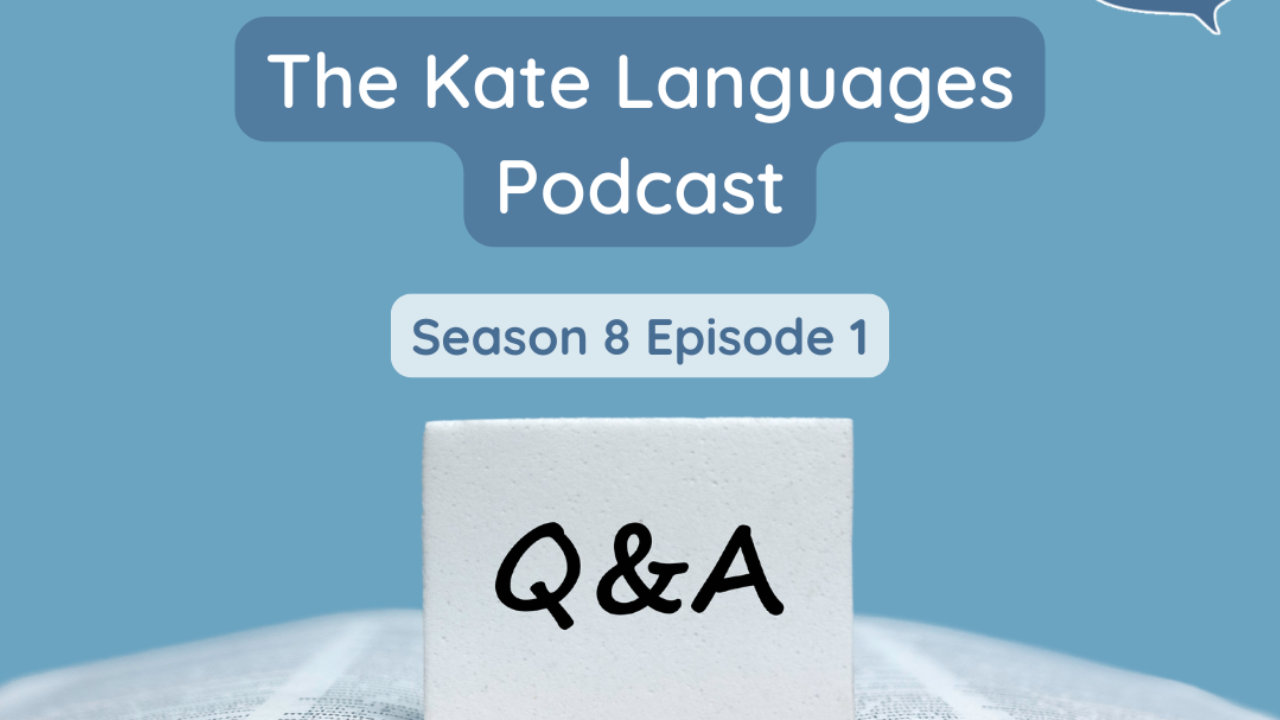The Kate Languages Podcast - S8 Ep1 - Q&A
Feb 18, 2025
In Episode 1, Season 8 of The Kate Languages Podcast, released in September 2024, I answered some great questions from the lovely members of my Facebook group about the new MFL GCSE.
Here is a summary of the episode - to listen to the episode in full, click "play" above.
Q&A Episode 7
Is it worth giving students a general conversation booklet for the speaking exam?
For both AQA and Edexcel speaking exams, which include a photo task followed by a conversation, providing students with potential questions is valuable. Going through sample assessment materials across French, German and Spanish is recommended - use Google Translate or ChatGPT if you don't speak all languages. However, the exam boards strongly emphasise that conversations shouldn't sound like pre-learned sets of questions. This is particularly important for teachers who might be less confident in the language, especially given the current recruitment crisis in UK language teaching.
Will staff be able to choose questions in the speaking exam?
Yes, teachers can choose questions in the conversation part of the exam.
Will students need contrasting and comparing language for the photo cards?
For AQA, students need to describe two photos, but they don't need comparative language. For Edexcel, students only describe one photo, so comparison isn't required at all.
For the read aloud task, are the comprehension questions about the text or are they for the people to answer about themselves?
The follow-up questions after the read aloud task aren't comprehension questions about the text. Instead, they're compulsory questions that students answer about themselves.
Are the vocabulary lists the same for AQA and Edexcel?
No, they differ. While 85% of both boards' prescribed vocabulary lists come from the most common words, each board makes its own selection. The remaining 15% consists of cultural words and other vocabulary that the exam boards consider important for young people's communication needs.
Where can teachers access AQA GCSE vocabulary by topic?
The AQA website provides comprehensive scheme of work vocabulary documents for all three languages. Additionally, I've been creating vocabulary booklets over the summer with user-friendly layouts and visuals, broken down into manageable sections. These are available through the free resources section at www.katelanguages.co.uk.
Will grade boundaries be less severe with the new course?
This remains an ongoing issue in Modern Foreign Languages. While there's hope that the new GCSE will address the historically severe grading, it's still uncertain.
What about A-level changes and accessibility?
There's currently no indication of A-level reforms. The jump from the new GCSE (working with 1,700 words) to the current A-level presents a significant challenge, which raises concerns about future A-level language uptake.
How should curriculum changes be approached?
The key recommendation is to focus on phonics. Understanding and embedding phonics into everyday teaching and lesson planning is crucial. Breaking down pronunciation into constituent parts helps students better grasp language sounds - something I wish I'd known twenty years ago.
Regarding the subjunctive and complex structures, while only the present subjunctive (first to third person singular) is required at higher level, it's still beneficial to teach additional structures to high-achieving students. Although they won't receive extra credit for language outside the prescribed lists, it contributes to demonstrating a wider range of vocabulary and structures.
Final Thoughts
When facing a new specification, it's important not to view it as an insurmountable challenge. Take a gradual approach - focus on one aspect at a time, whether that's grammar, phonics, or vocabulary alignment with the prescribed lists. Use resources like the University of York Multiling Profiler to check text compatibility with vocabulary requirements.
Teacher workload is already substantial, so don't feel pressured to perfect everything for Year 10 immediately. Make gradual adjustments as you progress through the year. For ongoing support and discussion about the new GCSE, join our Facebook group, where weekly questions are posted and the community shares experiences and understanding of the new specification.
Subscribe to the Kate Languages Podcast on Apple Podcasts here!
Stay connected with news and updates!
Join my mailing list to receive exclusive offers, freebies and to be the first to know about new resources and upcoming CPD workshops!

